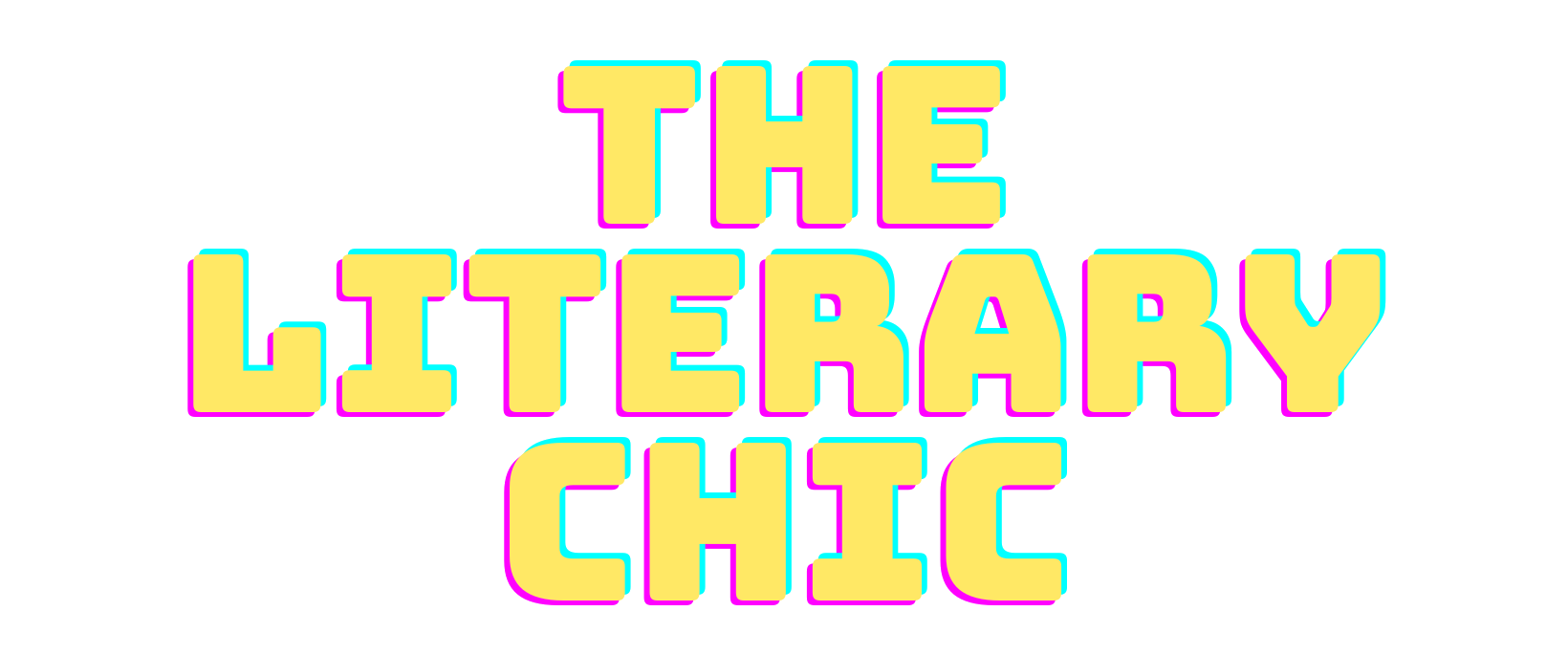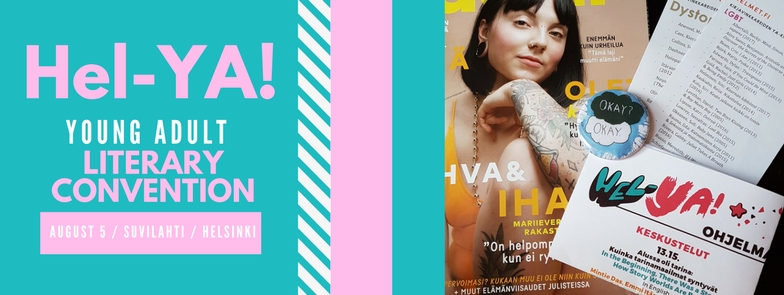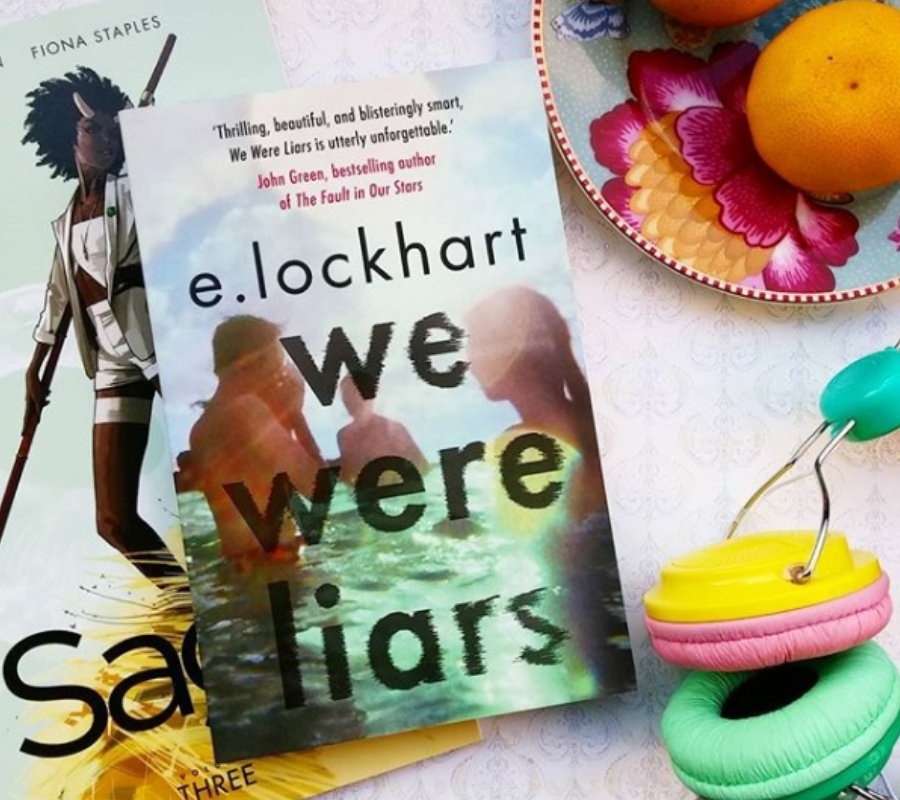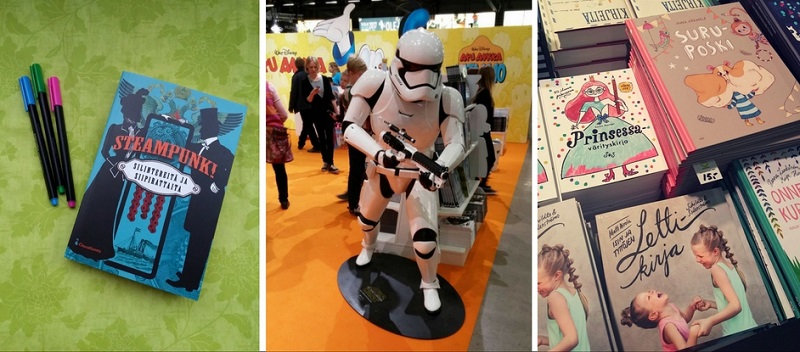MY FIRST WORLDCON EVER! Worldcon 75 was held right here in Helsinki and naturally I was there! There was so much program but I’m quite happy with the panels I saw, though some of them felt a little unstructured and unplanned. The turnout was quite something, it’s hard to believe that in the history of the con, this was the second largest as far as visitor amount goes. Yay Finland! One of my favorite moments was meeting Joe Abercrombie, who was super nice and signed my book and took a photo with me. Also, I did squee quite a bit when seeing George R.R. Martin <3 Here’s a quick rundown of the panels I attended at Worldcon.
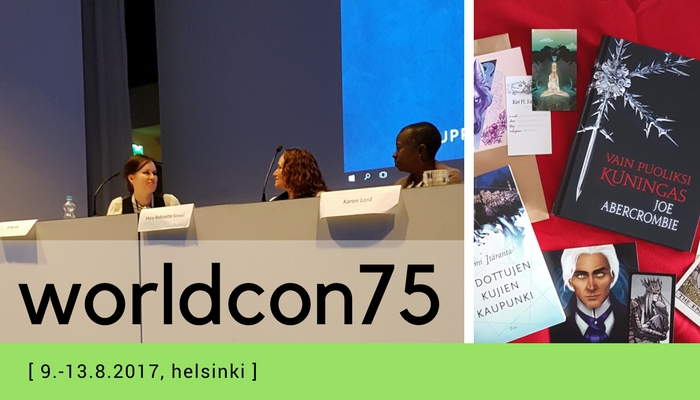
My First Novel – How to get Started
Mary Robinette Kowal, Elizabeth Bear, Erika Vik, Walter Jon Williams, Karen Lord
Many people dream about writing a novel, but never actually get started. The panel discusses the various ways one may find the inspiration and drive to actually put the pen to paper (or characters on the screen).
Karen Lord, a Barbadian writer of speculative fiction, emphasized that as a writer you have to find your character’s quirk and figure out what makes them special, because you ARE NOT your character. You can’t bring yourself into every story because, in the end, it gets boring.
The panel pointed out that writing, like many things, is non-binary. There are more than two ways of going about things. This was in reference to a view in the writing circles that an author is either a plotter or a pantser.
Their tips on getting over a writer’s block were to e.g. move to writing about another section of the story, do something else entirely, make deadlines, revise your earlier writing… or meet Gene Wolfe who apparently by his presence cured Walter John Williams’s writer’s block.
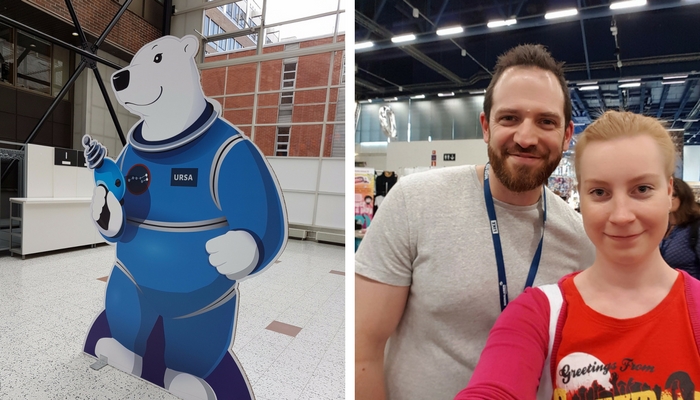
Trans Characters in YA
Leon Adams, Nick Falkner, Keffy R.M Kehrli, Nino Cipri
Is Young Adult literature more open to transgender characters than literature aimed at adults?
Much of the discussion in this panel revolved around the need for diversity in trans representation. There is too much focus on how much trans characters hate themselves, even though it is not necessarily representative of the reality (or a healthy representation of the trans experience). The ”born this way” narrative seems to steamroll over all other narratives. The focus on the stories is always on coming to terms with being trans and seeking acceptance from one’s social circles, but that should not be the only story about being trans. There was a general cry for something more: ”Give us the space opera or cute romance where trans people are characters among the rest and their trans-ness is not the focus. And give us stories of trans people loving themselves.” This line of discussion also raised the point about diversity in general: Why is there no representation of homeless trans PoC when in reality many homeless kids are trans? There appears to be a single narrative problem, not only in that the narrative is always about coming to terms with being trans but also in that the main characters tend to be white middle class teens. Also, the stories about trans people are often focused on characters who want to transition while not all trans people even want that.
The moderator asked whether it’s worse to have bad representations in literature than no representation at all. The consensus seemed to be that while bad representations are obviously not ideal, at least they can be used as a stepping board to something better. And the harmfulness of those bad representations can be manifested as feelings of uncertainty and doubt in trans youth who are not seeing themselves in the stories.
Continuing on about the bad writing choices in trans representations, the panel raised the point that authors should avoid technology that allows for the change of one’s sex in scifi because it erases the trans identity completely. It’s comparable to the cure narratives in relation to disabilities in scifi. Also, in general, authors should talk to actual trans people about details, such as binders, in order to reflect the reality of trans life.
When discussing the reason why trans stories might work in YA lit, the panelists mentioned that since YA readers are still in the learning phase in their lives, it makes them more open to trans characters – they are less biased. However, they also pointed out that while readers might be open-minded, the publishers can be fairly conservative.
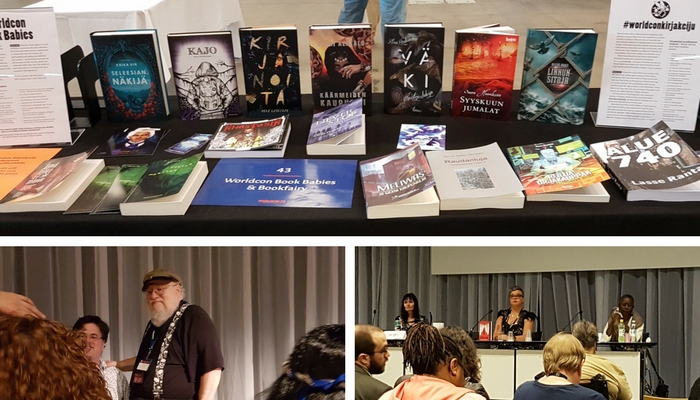
Built Upon the Shoulders of Giants
Jon Oliver, Alex Acks, Jeffrey A. Carver, George R. R. Martin
You know how to build an imaginary world, and you know which authors have constructed your favourites. But what do publishers do when they are inundated with speculative fiction novels full of great worlds. What are the defining elements that set a novel (and the world it’s built in) apart from the crowd? Our panel of publishers, editors and authors will tell all on exactly what type of world building makes them squeal with delight.
In this panel, there was some talk about info dumps and whether they should be used in scifi and fantasy. Few of the authors were of the opinion that info dumps are okay as long as the reader is interested in what is being told. Martin explained that there are different ways to do an info dump: appendix á la Tolkien , footnotes, and the regular info dumps. He explained that he prefers ”infohints” instead of infodumps and emphasized that the reader doesn’t need to know everything the author knows.
The panelists also talked about magic and its rules, and Martin posed that because magic is not natural and should not be predictable, there should be a sense of danger and unpredictability when writing magic into novels.
Fairy Tale Retellings
Salla Simukka, Kim Wilkins, Navah Wolfe, Karen Lord
Fairy tale retellings – what makes them so persistent and appealing to successive generations? From Once Upon a Time in TV to the cyberpunk fairytale retellings by Marissa Meyer.
Lord and Salla Simukka talked about how the good fairy take retellings take the bones of the original story and flesh them out in a way that helps the reader to understand the sometimes truly odd folk and fairy tales. The wrong thing to do is to force the shape of the story to fit your own agenda. It has to come naturally in order to work.
Lord also theorized that the old stories can be viewed as a community’s way of coping with a trauma (e.g. murders, kidnappings). It gives a way to talk about the traumatic events without direct reference to it. She also mentioned that the reason why fairy tales work so well as a basis for a new story is because people respond to rituals and because with fairy tale retellings you get added layers and depth, almost like in jazz.
Simukka said she was adamant about NOT doing simply a Snow White retelling with her crime YA novels but now realizes the various layers in her own story. She said that her books can be read without knowing the original story at all. This lead the panel to agree that a good fairy tale retelling works whether or not the reader knows the original version. They also were of the opinion that you don’t need to make fairy tales darker to work for a e.g. YA dystopia because they are already quite disturbing. The authors even said that these tales were the YA literature of their time, which is an interesting way to think about it!
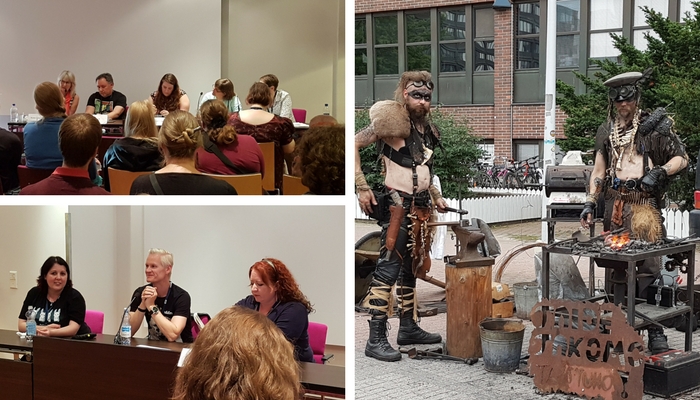
Assassins, Warriors and Other Badass Female Leads in YA
Cassandra Rose Clarke, Katie, Caroline Hooton, Aidan Doyle, Karen Simpson Nikakis
Young adult fiction has given us a number of interesting and badass female characters. The panel discusses their favorite YA heroines!
Right off the bat the panel raised a question of whether a ”badass female character” is just another impossible standard? Who can compare themselves to Katniss with her hunting skills, for example?
Clarke raised Sansa Stark from Game of Thrones as an example of someone who uses their femininity for survival; she is strong through her femininity. The other panelists seemed to agree that we should start acknowledging feminine traits as heroic rather than weak. Clarke also raised Hermione as an example of this: she is a strong female but she uses her brain rather than brawn.
Furthermore, it was pointed out in the panel that violence is an easy shortcut to conflict, which is what you usually have in fiction, but badass shouldn’t always equal violence.
YA Trends in Different Countries
Henrik Fexeus, J.R. Johansson, Michelle Lovi
Are similar things popular all over the world, or are there differences in what’s popular in Young Adult fiction all over the world?
According to Michelle Lovi, Australians import a lot of their literature: only 5-10 out of 400 books that are published in a month are local. In Sweden the big publishers publish YA books but not the independent ones, while in Australia, for example, the independent publishers also do YA.
According to Johansson, in the US, the trends are easy to see: romance pays everyone’s bills in publishing. Eastern Europe and Germany, on the other hand, prefer thriller and mystery. Johansson also said that, in the US, there is a push for more diversity and realistic YA fiction. This point about diversity has actually been raised in pretty much every YA literature discussion I’ve heard this year. The panelists mentioned also that, on a more general scale, classic scifi on the rise, which elicited comments from the audience that in YA the different scifi subgenres are still missing. The panelists also stated that horror is on the rise a little bit and high fantasy always seems to do well.
As a final comment, a question from the audience rose about whether or not hope is absolute must element in YA and the panelists agreed that it is extremely prevalent.
All in all, the event was a great experience: I only attended on one of the five days but had an absolute blast. Next time, though, I would hope to have a more strict schedule that includes time for all the queuing because I definitely missed some discussions I would’ve liked to have seen.
Have you ever been to Worldcon? How did you like it?
